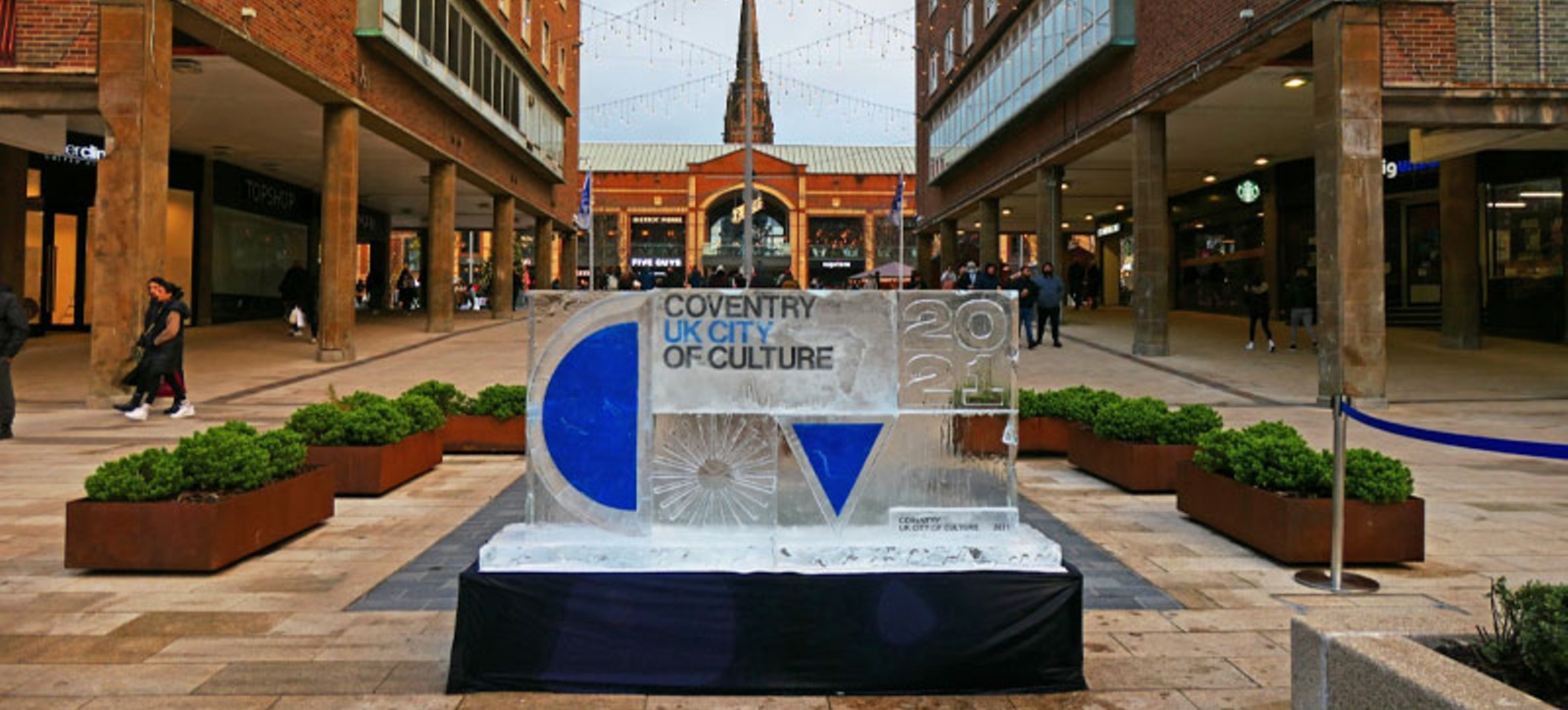
Event horizon: Big events like the City of Culture, held in Coventry in 2021, should be part of a long-term strategy, a new report suggests
A major new report sets out a national ambition for how the UK can strengthen the ecosystem around major events and expand their long-term social impact.
Spirit of 2012, the body set up to build on the legacy of the London 2012 Olympic Games, has joined forces with Warwick Business School, to set out a plan for the UK to maximise events like the Olympics and Paralympics and the UK City of Culture.
The expert advisory report, Creating the Golden Thread, was launched at the House of Lords yesterday and calls for multiple stakeholders to work together to create a shared ambition and strengthen the legacy of culture, sport and ceremonial major events.
The report is based on experience and expertise in the evaluation of major events from Warwick Business School's Jonothan Neelands, Haley Beer and Mark Scott, who were involved in Coventry’s year as UK City of Culture in 2021 and the Commonwealth Games hosted in Birmingham in 2022, and the findings from a series of roundtables for funders, event organisers and local government held in Coventry, Edinburgh and Liverpool.
Lead author Jonothan Neelands, Professor of Creative Education at WBS, said: “What the country needs is a framework that allows the systematic evaluation of major events.
“This will help us to determine the lasting value of these events to both the economy and society. It will also help us learn from each event held and apply those lessons to future events.
“This in turn would provide the necessary information to create a UK-wide strategy for hosting major events in order to maximise the benefit for the nation.
“That is why we have worked with Spirit of 2012 to publish an advisory report, Creating the Golden Thread, which we have launched at the House of Lords.”
After extensive consultation and analysing copious amounts of evidence, the report identifies five recommendations.
- Create a 10-year major events strategy – this should bring together central, devolved, and local government, the events industry, and investors to maximise the social, cultural, sporting, and economic impact of events.
- Develop a national evaluation framework – the Department for Digital, Culture, Media & Sport (DCMS) needs to create a national evaluation framework for major events based on the five common outcome areas; Economic value, job creation, health and wellbeing, social and cultural value, and environmental sustainability.
- National Major Events Data Observatory – it would provide an open-access repository for evaluations of major events and lessons to be learned.
- National Major Event Relationship Manager – they will help stakeholders to work together effectively to achieve their shared goals.
- Include funding for legacy periods in all event planning – this will ensure that the positive impact of the event can be maximised and sustained over time.
Ruth Hollis, Chief Executive, Spirit of 2012, said: “Over the last 10 years Spirit of 2012 has seen the power of events lift and unite communities, leaving tangible and intangible legacies for communities and individuals for years to come.
“This report calls for events commissioners, organisers and funders to work together to ensure that the multiplicity of events hosted the length and breadth of the UK – from the UK Cities of Culture, sporting events and community celebrations – work together to become more than the sum of their parts.
“The UK is a world leader in the delivery of events; these recommendations will help to ensure we are a world leader in securing long term, lasting impacts from them.”
How a major events strategy will bring stakeholders together
Haley Beer, Associate Professor of Operations Management at WBS, added: “To ensure that major events deliver successful outcomes and sustainable legacies, they require strategic planning, careful management, and collaboration from a diverse range of stakeholders.
“However, many stakeholders involved in the event will have their own interests. The challenge is to encourage these stakeholders to see the benefits of working together towards a shared ambition.
“Major events deliver the greatest value when stakeholders are fully aligned and share a relentless focus on achieving their collective priorities.
“These stakeholders should each have clearly defined roles and responsibilities across three key elements of the event’s eco-system: aligning policy and investment, effective event management, and evaluation and knowledge exchange.”
Further reading:
Why measuring social impact is good for business
Call for free internet ‘cultural library’ for UK
How has vinyl made such a comeback?
Jonothan Neelands is Professor of Creative Education and teaches Leadership and the Art of Judgement on the Executive MBA, Executive MBA (London) and the Global Online MBA.
Haley Beer is Associate Professor of Operations Management and lectures on Leading and Enhancing Diversity on the Full-time MBA, Executive MBA, Executive MBA (London) and the Global Online MBA. She also teaches Foundations of Business on the Foundation Year.
Learn more about strategy on the four-day Executive Education programme Creating Strategic Advantage at WBS London at The Shard.
For more articles on Strategy and Organisational Change sign up to the Core Insights newsletter.




 X
X Facebook
Facebook LinkedIn
LinkedIn YouTube
YouTube Instagram
Instagram Tiktok
Tiktok